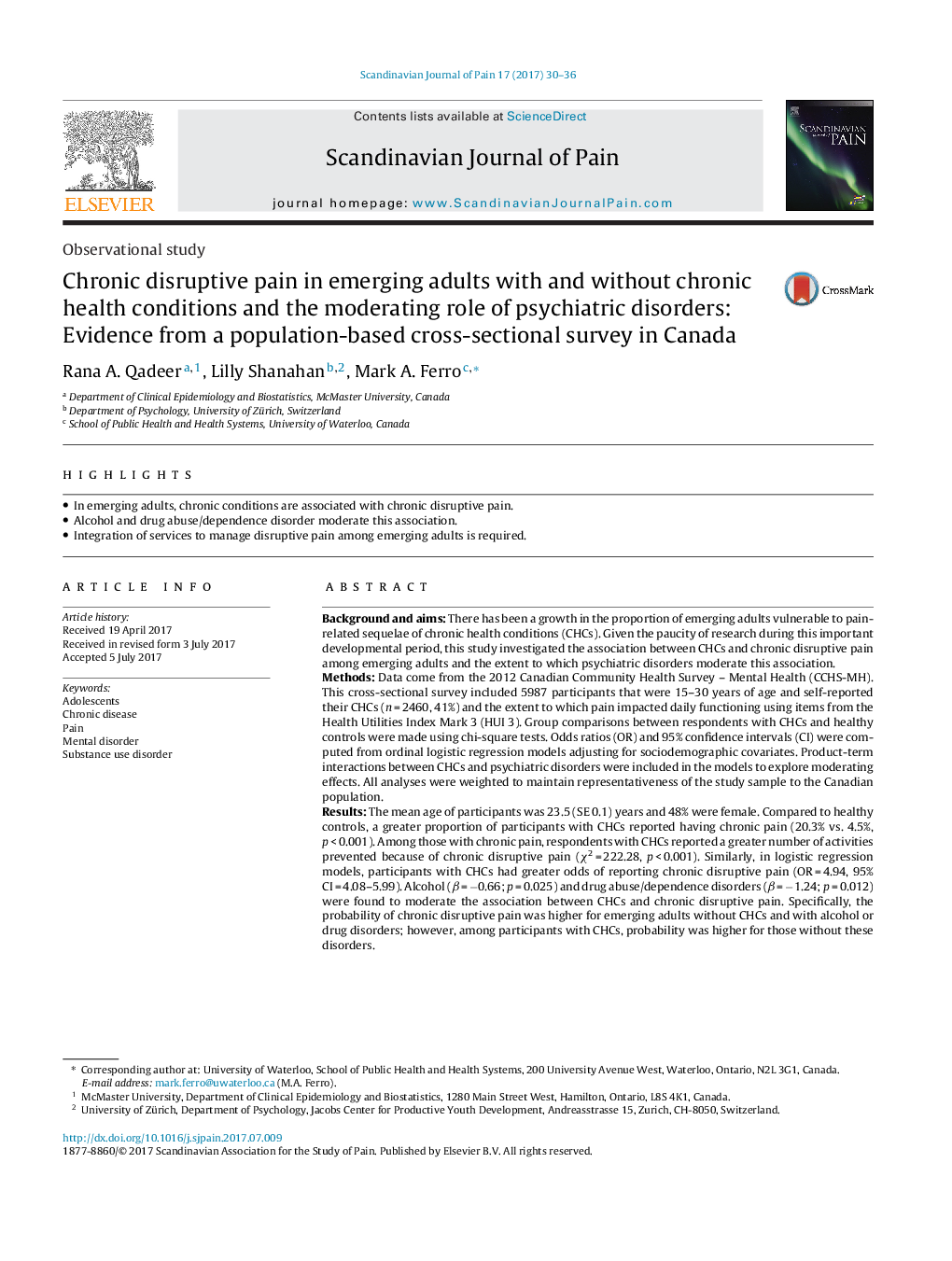| Article ID | Journal | Published Year | Pages | File Type |
|---|---|---|---|---|
| 8622986 | Scandinavian Journal of Pain | 2017 | 7 Pages |
Abstract
Findings from this study have implications for the integration and coordination of services to design strategies aimed at managing chronic disruptive pain and preventing pain-related disabilities later in life. Within the health system, healthcare providers should engage in dialogues about mental health and substance use regularly with emerging adults, be proactive in screening for psychiatric disorders, and continue to monitor the impact of pain on daily functioning. Given the age range of emerging adults, there is tremendous opportunity for clinicians to work cooperatively with colleagues in the education system to support emerging adults with and without CHCs. Overall, clinicians, researchers, educators, and those in social services should continue to be mindful of the complex interrelationships between physical and mental health and chronic disruptive pain and work cooperatively to optimize health outcomes and prevent pain-related disabilities among emerging adults.
Related Topics
Health Sciences
Medicine and Dentistry
Anesthesiology and Pain Medicine
Authors
Rana A. Qadeer, Lilly Shanahan, Mark A. Ferro,
